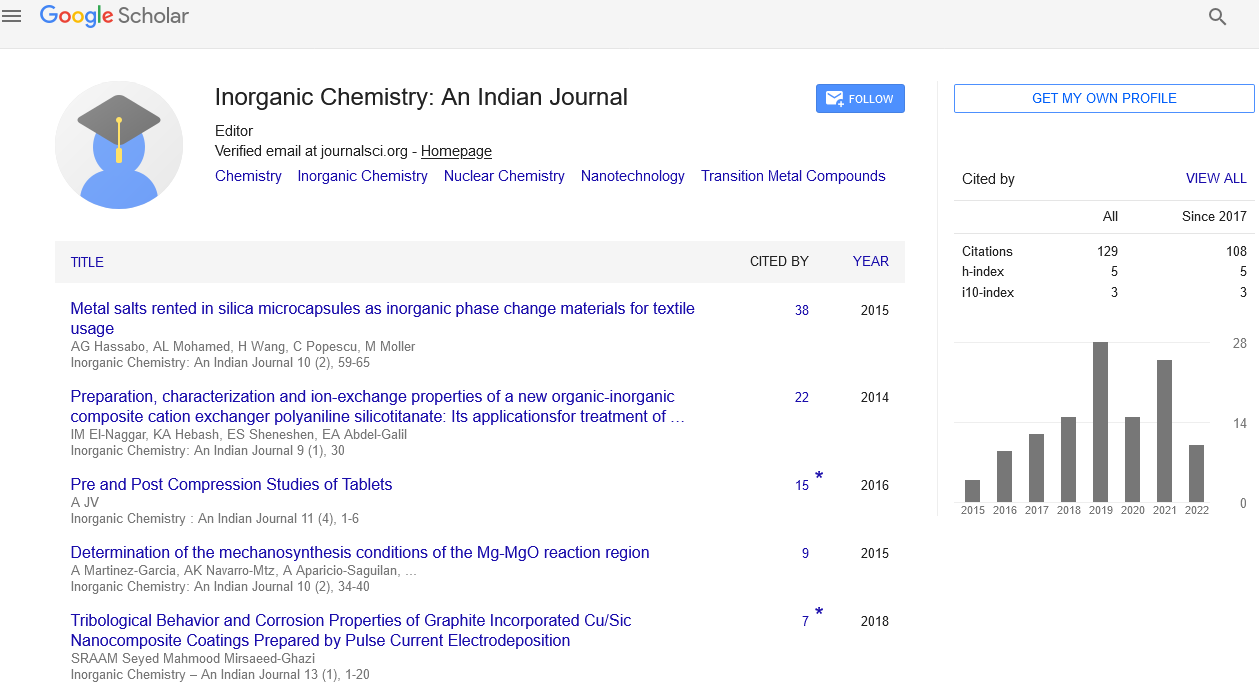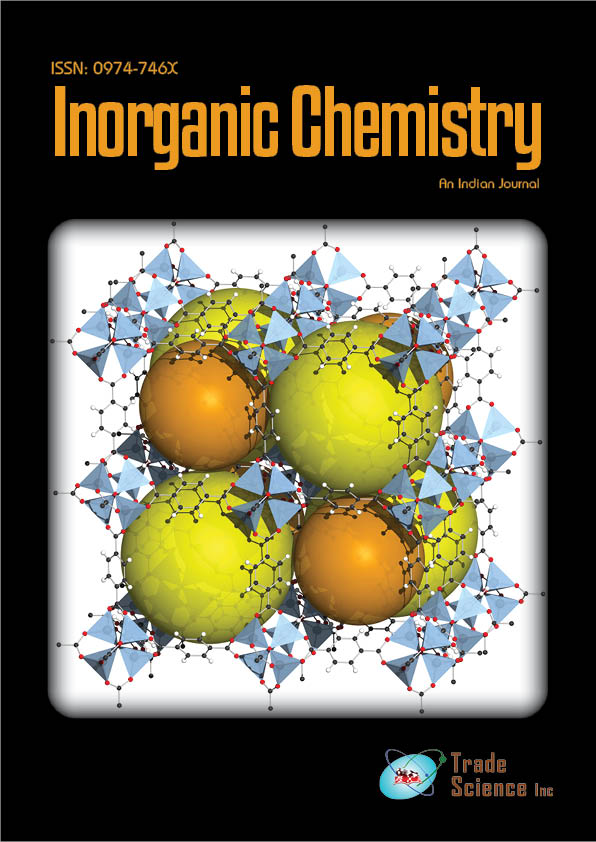Abstract
Synthesis of transition metal complexes of bidentate ligand and their antimicrobial studies
Author(s): T.K.Chondhekar, V.A.Shelke, S.M.Jadhav, V.R.Patharkar, S.G.Shankarwar, A.S.MundeThe solid complexes ofCu(II),Ni(II),Co(II),Mn(II) and Fe(III)were prepared from bidentate Schiff base,1-(2-Hydroxybenzamido)-2-(2-methylphenyl)- azomethin. The Schiff base ligand was synthesised from 2-hyhdroxy benzo hydrazide and acetophenone. These metal complexes were characterized by molar conductivity, magnetic susceptibility, thermal analysis, x-ray diffraction, FTIR, 1H-NMR, UV-vis and mass spectroscopy. The analytical data of thesemetal complexes showedmetal: ligand ratio (1:2). The physico–chemical study supports the presence of square planar geometry around Cu (II), Ni (II) and octahedral geometry around Co (II),Mn (II) and Fe (III) ions. The IR spectral data reveal that the ligand behave as bidented with ON donor atom sequence towards central metal ion. The molar conductance values of metal complexes suggest their non electrolyte nature. The x-ray diffraction data suggests monoclinic crystal system for these complexes. Thermal behavior (TG/DTA) and kinetic parameters calculated byCoats-Redfernmethod are suggestive of more ordered activated state in complex formation. Antibacterial and antifungal activities of the ligand and itsmetal complexeswere performed in vitro against Staphylococcus aureus, Escherichia coli and Aspergillus Niger, Trichoderma respectively.

